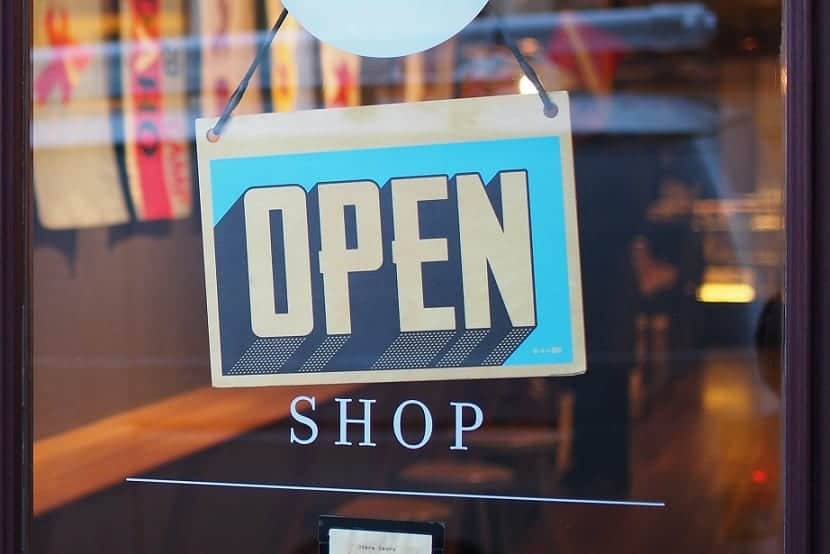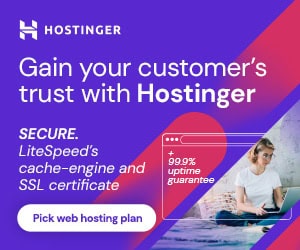Although COVID-19 is a force driving the surge of recent online sales (according to statistics, e-commerce stores are shipping off 25% more products than they used to), the truth is, the dominance of online shopping over brick-and-mortar has been a long-lasting trend.
Way before the pandemic, 67% of millennials stated that they enjoy buying goods online more than visiting physical stores.
Coupled with the global quarantine, these statistics are proof for brick-and-mortar store owners that moving their businesses online is no longer optional. Whether or not you have a viable online shopping infrastructure is now a determining factor in the survival of your business, so make sure to do it right.
This post is a concise checklist of how to make a smooth and low-cost switch between brick-and-mortar and e-commerce.
4 Benefits of Selling Products Online
Building a web shopping platform from scratch is a time-consuming and financially challenging commitment – that’s why eCommerce store managers tend to hesitate to make the call.
If you can’t make up your mind as to whether moving a brick-and-mortar online is a worthwhile investment, study these 4 convincing benefits of running an e-commerce store.
1. Reaching Wider Audiences
Compared to brick-and-mortar stores, e-commerce store owners aren’t as dependent on the location of the store. While physical shop managers mainly target the residents of a particular area, running a shopping platform allows attracting customers from all over a city, a region, or a country.
E-commerce platforms with a robust shipping infrastructure (like Amazon) are highly successful at offering international shipping and offer services to over 150 million people all over the world.
2. Cheaper Maintenance
Unlike a brick-and-mortar store that comes with a set of recurring expenses (monthly rent, electricity bills, property taxes, and more), running an e-commerce store is a low-investment project.
If you produce the product you’re selling on your own, a warehouse is the only property you need. As for retail platforms (those that distribute other sellers’ goods), they don’t need to invest in inventory either.
Here are the expenses store owners will cut once their brick-and-mortar store operates online:
- Advertising – online advertising is the cheapest form of promotion out there compared to billboard or local TV ads.
- Staff – since most e-commerce processes are automated (checking out, customer support, and others), store owners don’t need to hire large teams and can get by working on their own.
- Property – you don’t have to pay for, and maintain a physical location. There’s no need to invest in interior design, deal with electricity bills, and other associated expenses.
3. Knowing more about Shoppers
Brick-and-mortar stores don’t have tracking and behavior monitoring mechanisms as advanced as those online e-commerce platforms. By enabling pixels and setting up tracking pixels, an e-commerce store owner gets access to a vast array of data:
- the type of device a customer prefers to use for online shopping;
- types of products customers are looking for via search engines;
- demographics – location, age, and others;
- behavioral patterns – how much time a customer spends researching the product before making a buying decision, what type of information a shopper relies on, etc.
There are plenty of ways for e-commerce stores to drive sales using data targeting, such as Amazon’s personalized “Product Recommendation” tab and newsletters.
4. E-commerce Stores are Open 24/7
Unlike brick-and-mortar stores, e-commerce stores have no downtime. By allowing shoppers to access a website 24/7 and get in touch with automated customer support anytime, you will maximize the number of orders and increase your revenue.
Needless to say, users find the increased accessibility of online shopping platforms more convenient as well.
Switching From Brick-and-Mortar to E-commerce: Checklist
Now that you are fully aware of the benefits of transitioning online, figuring out the fastest and most cost-efficient way to migrate online is the next step. To make sure there are no miscalculations and missed opportunities in the process, follow this step-by-step checklist:
1. Set the Deadlines and the Budget
Estimating the amount of time and money needed to complete every stage of the move will mobilize your team and increase the motivation to double-check expenses.
Unfortunately, the halo effect – overestimating the team’s efficiency and the easiness of tasks, is common among business owners. That’s why it’s better to add an extra day or two to the original estimate – this way, you get enough time to handle unexpected bottlenecks.
2. Choose the Platform to Host your Store
There are three ways to go about this – you can either add an e-commerce plugin to your website, choose an off-the-shelf solution (e.g. Shopify) to host an e-commerce platform, or develop a custom website.
Let’s take a look at each of these options in detail:
- Adding a Plugin to an Existing Website. If you use WordPress to support the platform, there are hundreds of options to choose from. These are easy to integrate, familiar to website users, and support hundreds of payment gateways. However, a business owner should keep in mind that an e-commerce plugin is not as robust as a full-fledged platform.
- Using an e-commerce CMS (Shopify, Magento, etc.). These off-the-shelf solutions come with a robust toolset (e.g. reporting, payment gateways, delivery monitoring). Most content management systems are multilingual and scalable, allowing business owners to attract broader audiences. However, in the long run, paying for a Shopify subscription is more expensive than investing in a custom website or integrating an e-commerce plugin into the platform.
- Developing a Custom Website. Although reaching out to a development team is more expensive than paying a subscription fee, the security and freedom of a custom e-commerce website are worth the investment. Other than that, developing an online store from scratch is more cost-efficient in the long-term than investing in a subscription plan.
3. Figure out the Logistics
According to statistics, shipping is the reason why 37.8% of shoppers are unhappy with buying goods online. To retain one-time customers successfully once you move a brick-and-mortar business online, do your best to create a feasible, sustainable, and scalable order fulfillment strategy. Here’s how it’s done:
- Decide on the shipping method. There are several ways to handle product delivery – offering free shipping (a business owner covers fulfillment expenses by raising the price of the inventory), charging a real-time carrier fee or a flat shipping rate.
- Determine the weight of each product you sell. This way, an online store owner can relay accurate data to third-party vendors and make sure there are no hidden delivery fees.
- Invest in a tracking system. Delivery monitoring platforms are affordable and make the world of difference since they allow business owners to know if a delivery is delayed or a package is lost, and thereafter, get in touch with the supply chain vendors.
4. Get the Talent you need
As a brick-and-mortar store manager, it’s likely you focused on hiring people to handle client interactions. As you shift to digital, the need for other types of professionals – the tech ones – is inevitable. In our experience, these are the skills a business owner needs to keep an online store up and running:
- Software developers and testers. An online platform is a complex software project – launching new features, fighting off security threats, and adapting to the growing user base on your own is challenging. That’s why an e-commerce store manager needs to have a reliable development team by their side.
- Digital Marketing Specialists. Moving a brick-and-mortar store online introduces a plethora of promotion channels a business owner should learn to take advantage of. To create cost-efficient marketing campaigns, build connections with website visitors, and convert them to clients, online store managers rely on professional assistance. Reaching out to a digital marketing agency common among business owners delivers the confidence in the tools and campaign strategies chosen to promote the business.
- A Warehouse Manager. Similarly to a brick-and-mortar store owner, an e-commerce business owner needs to hire a professional who will keep track of the inventory, ensure that all products are stored under appropriate conditions, re-supplied on time, and packaged beautifully.
5. Create a Marketing Strategy
Online promotion strategies are different from those in the physical world. Take your time to research and profit from new opportunities – social media ads, PPC campaigns, content and email marketing, etc.
Create a marketing strategy that would describe the tools you are using to attract new audiences to the platform, as well as the budget, corresponding to each activity.
Here’s a short checklist that will help you design an effective promotion strategy:
- Start by Defining Key Business Objectives. Is spreading awareness about the store the top priority right now? Chances are, you need a campaign that would notify the store’s regulars about your online activity. Do you, perhaps, prioritize building a loyal community on social media? Understanding the goals of your marketing activities will help fight the most relevant advertising strategy and share the content that would make it easier to reach a given goal.
- Have a Clear Positioning. What special products, you as a seller, have to offer? How can users benefit from choosing the platform for shopping? What values and images do you want to be associated with? Consider creating a brand book that would specify the colors and typography you use on the website, in emails, social media, and other communication channels.
- Create a List of Buyer Personas. Understanding your target audience is crucial for a successful marketing campaign. Since the move from brick-and-mortar to e-commerce will broaden your reach, revisit your marketing documents, and add new types of shoppers who are likely to choose the brand.
Conclusion
While the pandemic will not wipe brick-and-mortar shops out completely, this year’s events emphasized the importance of having a digital infrastructure in place.
Although transitioning to an e-commerce platform comes with considerations, as long as you decide which platform you want to use for hosting, have a team to back you up, create thought-out shipping and promotion tactics, and set realistic deadlines, you’ll avoid unaccounted expenses and build a functional website your shoppers will enjoy using.
Author Bio
As CEO at Eastern Peak, a professional software consulting and development company, Alexey ensures top quality and cost-effective services to clients from all over the world. Alexey is also a founder and technology evangelist at several technology companies. Previously, as a CEO of the Gett (GetTaxi) technology company, Alexey was in charge of developing the revolutionary Gett service from ground up and deploying the operation across the globe from London to Moscow and Tel Aviv.









